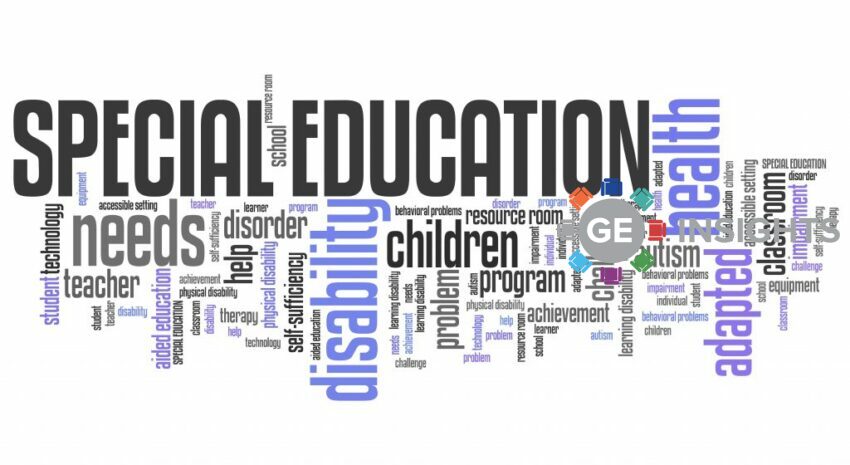All workers are protected against discrimination if they are dismissed or treated unfairly because of pregnancy or childbirth. If a person returns to work following ordinary maternity leave, they have the right to return to exactly the same job, this can still be a big transition following maternity leave. We heard from Dr Emma Waltham about how companies can better support those returning from maternity leave and dismantle the bias associated with this.
Dr Emma Waltham specialises in supporting STEM organisations to successfully re-engage with their maternity returners. Within her business, Emma works STEM organisations to improve the experience of their maternity returners, providing consultancy, training and coaching services. Organisations partner with her to create best practice experience for their returners so they can continue their career pathway after motherhood.

When we think about motherhood, it’s probably true to say that the vast majority of us have pre-conceived ideas about what a good mother is, how parents feel about their children, about the priorities mothers have, etc. These assumptions are deeply rooted in how we were parented, and in the roles and attitudes people have around us help form them.
In the UK, women’s careers have traditionally taken a back seat after children. Even today women find it challenging to progress after becoming parents. Women are hugely under-represented in senior roles, with Women in the Workplace 2021 finding that while nearly 50% of roles are filled by women at entry level, only 5% of C-suite jobs are held by females. The numbers are even more dire for women of colour.
Feedback Loop
I work 1:1 with many expectant and returning mums, and a common theme that comes up is that once women announce they are pregnant, people start to behave differently towards them. Now they have raised a flag saying they are in the motherhood camp, there’s a shift.
People assume all sorts of things about them and those assumptions can create challenges for women who want to continue on their career pathway, as most do. There are often confronted with pre-conceived ideas around ‘baby brain’, lower levels of commitment and ambition, and being made to feel that they are difficult and unreasonable, because of their need to work flexibly or sometimes remotely.
This mismatch between other people’s biases and their own perspective means that returning mums can begin to feel like they are not understood or valued, and they begin to disengage. They start to think about leaving and will seek out other employers which they perceive as being more welcoming to working mums.

How Bias is Reinforced
While a growing number of men want and do play an equal role in parenting, mums still carry an increased burden of domestic and caring work, so they have a lot more to juggle and work tends to have to give. This was even more the case during the pandemic pressures, as women shouldered the lion’s share of caring responsibilities and homeschooling.
All this means that women are often unable to take on a role if there is little flexibility, long hours or travel involved, because they are already doing a full-time job at home already.
This fuels the biases people already hold in the workplace. They expect women to ‘choose’ to press the brake on their career development, or to take a role that is less demanding, and they assume that is what they want and what other women will do. And when that happens, time and time again, so the bias gets reinforced.
In the worst case, this leads to maternity discrimination because or women end up raising grievances because they do not feel that they were treated respectfully or fairly.
How does this Impact the Organisation?
There are wide-ranging and profound implications for employers.
- Recruitment – people like to work with/hire people like themselves, so working mums face a barrier, particularly in male-dominated sectors and at more senior levels. Often pregnant women don’t even bother applying for jobs
- Employment gaps – women can end up having to occupationally downgrade to work around their children
- Retention — If women don’t feel understood and valued, they won’t successfully re-engage after maternity leave, and look to move on, once they’re past the baby stage and have head space to apply for jobs elsewhere
- Promotion – When people hold biases about working mums, it means women have to do more than others to be given the same opportunities.
- Wellbeing – It’s stressful trying to fit in, when you don’t feel you can be yourself at work, when you’re a problem
- Reputation – With all the current pressures organisations are facing recruiting and keeping their talent, to attract working mums they need a family-friendly reputation. To achieve that often companies have to create significant cultural shifts, to develop a more welcoming and inclusive environment for returning mums
Taking action: how organisations are tackling maternity bias
On International Women’s Day 2022, I partnered with not-for-profit accommodation provider Housing 21 to deliver a webinar focusing on the challenges faced by women at work after maternity, and steps that managers can take to successfully re-engage the company’s maternity returners.
As part of its International Women’s Day 2022 programme of virtual events, Housing 21 wanted a maternity returner specialist to present a Q&A session, so that managers in the organisation understand the challenges faced by returning mums, how that impacts on the gender pay gap and what they as managers can do to help women successfully re-engage after parenthood.
The webinar was designed to tie in with the International Women’s Day theme of #BreakTheBias to raise awareness of the challenges faced by women at work after maternity, so that managers understand the impact of parenthood on women’s careers.
Housing 21 wanted to focus on how participants can help women in the organisation have a positive experience when they go through the maternity transition, so that new mums stay and continue their career progression.
We delivered a live, interactive 30-minute session by zoom video conferencing to 46 Housing 21 colleagues. The webinar covered:
- The lived experience of women in the workplace when they go through the maternity transition, including the biases that impact on their re-engagement, confidence and progression
- Evidence that shows what is happening to women today, to help managers and colleagues understand the importance of supporting returners on retention and how barriers to participation impact on the gender pay gap
- Ideas for how participants can successfully blend their own working lives with parenthood, so that they feel understood and to emphasise that Housing 21 is an organisation that values returning mums
- How to ease the transition back into work, from the perspective of women returners, colleagues and managers/HR
The impact of our presentation
The presentation was followed by 10 minutes of Q&A. Some of these questions explored how a workplace community can help to raise a child, how somebody can challenge some more out-dated opinions towards returning to work and what the impact of maternity bias is on single parent or same sex relationships in the workplace.
The session was recorded by Housing 21 and will be used as part of the company’s future bias training suite.
“I really look forward to getting to work with Emma – I have done on a couple of occasions now. One of the recurring themes I have found in my career in equality, diversity and inclusion is that of fear: people are often afraid of the subject as they don’t want to get anything wrong or inadvertently offend. However, none of this matters one jot with Emma, because she puts everyone so completely at ease and respects her audience enormously. Having Emma talk to us has elicited a really strong response, with dozens of people wanting access to the recording. Thanks to this session we have some of the tools we need to help create an empathetic, supportive and inclusive working culture.”
John Simmonds, Respect and Inclusion Lead, feedback on the training:
Find out more about how your organisation can create a welcoming and inclusive culture for returning mums at www.returning.works/
Register FREE to access 2 more articles
We hope you’ve enjoyed your first article on GE Insights. To access 2 more articles for free, register now to join the Government Events community.
(Use discount code CPWR50)




